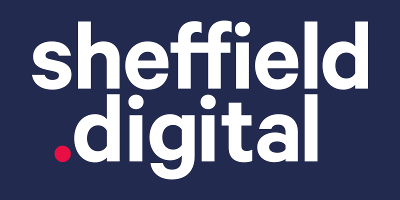We're excited to bring you the first of a regular virtual meetup. We might not be able to give you pizza & drinks, but bring your own, settle down for a listen and we will bring you some excellent speakers.
We'll be using Zoom, and the details will be emailed to all attendees prior to the event, so make sure you've RSVP'd so we send them out to you.
We're delighted to say that Mine Çetinkaya-Rundel from the University of Edinburgh, who was due to speak for us in March, is going to help kick off these virtual events. She'll be speaking about workflows for reproducibility that touch on everything from data storage, cleaning, analysis, to communication of final results.
We're keeping the event a little shorter than usual, so no lightning talks - however... we would love to hear from you if you have a lightning talk you would like to give at a virtual event in a few weeks time, so get in touch with us.
MAIN TALK:
=====================
Bio: Mine is a Senior Lecturer in the School of Mathematics at University of Edinburgh and Data Scientist and Professional Educator at RStudio. Mine’s work focuses on innovation in statistics and data science pedagogy, with an emphasis on computing, reproducible research, student-centered learning, and open-source education as well as pedagogical approaches for enhancing retention of women and under-represented minorities in STEM. Mine works on integrating computation into the undergraduate statistics curriculum, using reproducible research methodologies and analysis of real and complex datasets. She is one of the organisers of R-Ladies Edinburgh
Description:
For data analysis to be reproducible, the data and code should be assembled in a way such that results (e.g. tables and figures) can be re-created. While the scientific community is by and large in agreement that reproducibility is a minimal standard by which data analyses should be evaluated, and a myriad of software tools for reproducible computing exist, it is still not trivial to reproduce someone’s (sometimes your own!) results without fiddling with unavailable analysis data, external dependencies, missing packages, out of date software, etc.
In this talk, we present good, better, and best workflows for reproducibility that touch on everything from data storage, cleaning, analysis, to communication of final results.
LOGISTICS
===========
1855: Zoom Waiting room will open
1900: Meetup will start - welcome & community announcements followed by our main speaker, and then Q&A
We'll aim to be finished by 2000
REMOTE MEETINGS
===================
Please remember the Code of Conduct applies to a remote meeting as well.
When you join the meeting, your microphone will be muted, and your camera switched on, we miss you all, it's nice to see you! Once the talk starts, feel free to switch your camera off.
We'll use the chat channel in Zoom to deal with any issues, and we'll advise on how we will run the Q&A at the start of the session.
SPONSORS
=============================
While we might not be making such full use of our sponsors as we normally do, we still appreciate all they do for us to allow us to run this group - so thanks to Cathcart Associates, Wood Mackenzie, Solarwinds, Lloyds Banking and Canon Medical
CODE OF CONDUCT
====================
Though virtual, our Code of Conduct still applies to all attendees, organisers and speakers. Please take the time to read through if you haven't before, we really appreciate your help to maintain a welcoming and friendly PyData community.
The PyData Code of Conduct (pydata.org) governs this meetup. To discuss any issues or concerns relating to the code of conduct or the behavior of anyone at a PyData meetup, please contact the local group organizers (message us on the meetup page). Please also submit a report of any potential Code of Conduct violation directly to NumFOCUS using the link found at numfocus.org.
More details andtickets: www.meetup.com
Imported From: www.meetup.com


